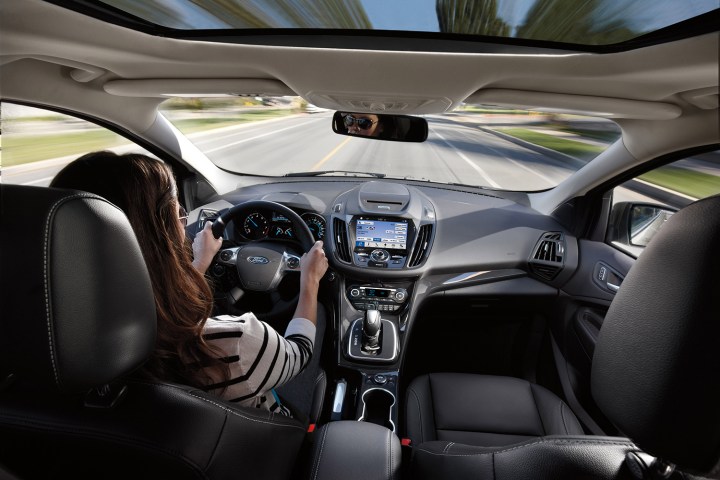
The two automakers are forming the SmartDeviceLink Consortium, a nonprofit organization that will manage use of the platform, with involvement from multiple companies. Mazda, PSA Peugeot Citroën, Suzuki, and Subaru parent Fuji Heavy Industries have all signed on, as have suppliers Elektrobit, Luxoft, and Xevo. Harman, Panasonic, Pioneer, and QNX have signed letters of intent to join, according to Ford.
SmartDeviceLink is based on Ford’s AppLink system, introduced in 2013. It’s meant to give app developers unfettered access to vehicle systems, with the hope that those developers will create more apps specifically tailored for cars. Ford and Toyota hope that getting more automakers and suppliers to sign on to SmartDeviceLink will help create a level of standardization, allowing developers to create a single version of a piece of software that be can used across a larger number of car models.
“Connectivity between smartphones and the vehicle interface is one of the most important connected services,” Shigeki Tomoyama, president of Toyota’s Connected Company, said in a statement. “Using SmartDeviceLink, we can provide this service to our customers in a safe and secure manner. We are excited to collaborate with many auto manufacturers and suppliers who share our view.” Toyota plans to commercialize a telematics system using SmartDeviceLink around 2018.
While the goal is standardization, Ford and Toyota noted that participating companies will be able to “deliver user experiences that meet their individual standards while retaining control over how much access apps have to vehicle data.” SmartDeviceLink will essentially work as a template, allowing carmakers to make distinctive versions of different infotainment features for themselves.
The jointly developed SmartDeviceLink provides one possible way for automakers to maintain control over the software that goes into their vehicles, rather than wholly outsourcing the process to tech companies like Google, which just unveiled an Android-powered infotainment system for Fiat Chrysler Automobiles at CES 2017.
Editors' Recommendations
- Ford EV drivers can use 12,000 Tesla Superchargers starting in 2024
- 2021 Toyota Highlander vs. 2020 Ford Explorer
- Mechanics will use Bosch’s VR tech to learn how to fix the Ford Mustang Mach-E
- Entrepreneurs are buying vans instead of signing leases, says Ford
- Amazon Alexa now works with more than 60,000 smart home devices


